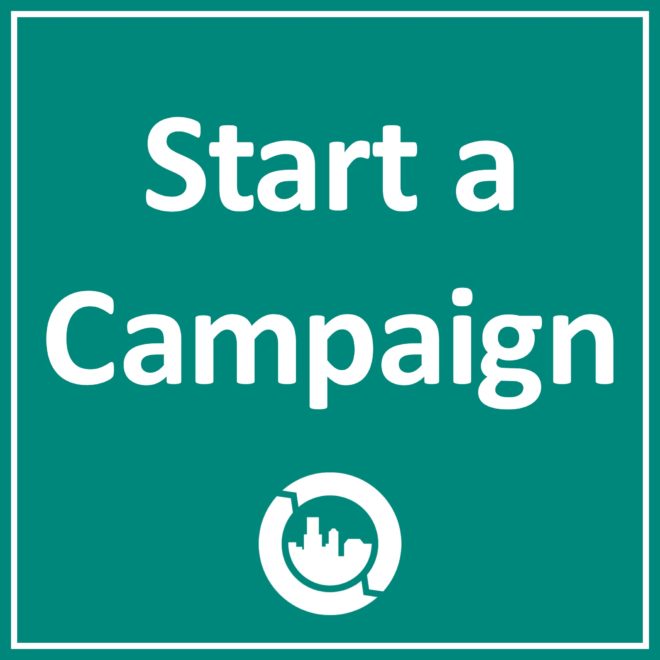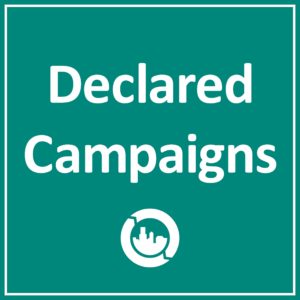From Students to Fair Trade Entrepreneurs
Students have played an integral role in shaping and growing the Fair Trade movement across the country. From UCLA in California to Green Mountain College in Vermont, students work to educate their classmates, spread awareness to administrators, and make sure their campus sells products that provide better working and living conditions for those that make them across the globe.
But what happens once these organizers near the end of their academic careers? How do they continue their social activism and their passion for ensuring better, fairer, more sustainable products beyond campus?
In some cases they trade their cap and gown for a suit and tie, taking their organizing skills and passions to the business world. Here are two students did just that.
 Benjamin Conard – a long time Fair Trade activist and State University of New York (SUNY) at Geneseo alum – spent time with his aunt and uncle who owned a shop that sold Fair Trade products in Bar Harbor, Maine. By the time he was in high school Ben was working at a branch store his family opened up in his hometown of Stony Brook, New York. Once he entered college at SUNY Geneseo, Ben began to explore how he could implement Fair Trade on his campus and met former National Organizer, Parker Townley, who introduced him to the burgeoning Fair Trade Campaigns. Just a few months later, in September of 2013, Ben found himself traveling over four hours to Amherst, Massachusetts, to attend one of the first New England Fair Trade Regional Conferences at Hampshire College. From there Ben began the campaign at SUNY Geneseo, during which time he served as a member of Fair Trade Campaigns’ National Steering Committee, held a TEDx talk on Fair Trade, and was able to travel to Milan for the World Fair Trade Conference in May of 2015.
Benjamin Conard – a long time Fair Trade activist and State University of New York (SUNY) at Geneseo alum – spent time with his aunt and uncle who owned a shop that sold Fair Trade products in Bar Harbor, Maine. By the time he was in high school Ben was working at a branch store his family opened up in his hometown of Stony Brook, New York. Once he entered college at SUNY Geneseo, Ben began to explore how he could implement Fair Trade on his campus and met former National Organizer, Parker Townley, who introduced him to the burgeoning Fair Trade Campaigns. Just a few months later, in September of 2013, Ben found himself traveling over four hours to Amherst, Massachusetts, to attend one of the first New England Fair Trade Regional Conferences at Hampshire College. From there Ben began the campaign at SUNY Geneseo, during which time he served as a member of Fair Trade Campaigns’ National Steering Committee, held a TEDx talk on Fair Trade, and was able to travel to Milan for the World Fair Trade Conference in May of 2015.
Since he graduated, the campaign at SUNY Geneseo has continued to remain active in spreading education and awareness about Fair Trade throughout the campus. And his dedication to Fair Trade couldn’t be stopped. Wanting to continue his passion for social entrepreneurship, Ben now co-owns Five North Chocolate, a small artisan Fair Trade chocolate company that seeks to bring awareness to the source of modern chocolate production and the ingredients that make it possible – West Africa.
 Sam Ronkin, a Brandeis alum, came to Fair Trade from a different direction. Spending much of his extracurricular time in entrepreneurial endeavors, like running The Technical Trader’s Society on campus, Sam had a passion for new and innovative business practices. While in his classes he noticed that many of his classmates were heavily dependent on unhealthy, chemical-laden energy drinks to fuel them through late-night study sessions and early morning classes.
Sam Ronkin, a Brandeis alum, came to Fair Trade from a different direction. Spending much of his extracurricular time in entrepreneurial endeavors, like running The Technical Trader’s Society on campus, Sam had a passion for new and innovative business practices. While in his classes he noticed that many of his classmates were heavily dependent on unhealthy, chemical-laden energy drinks to fuel them through late-night study sessions and early morning classes.
Using his academic background in biology, Sam, along with a few of his fellow students, thought that there must be a healthier and more ethical product that students could use to keep their energy up. Thus came the idea for 4 Purpose Energy, a Fair Trade energy drink aimed at improving the world one can at a time.
Recently, I had a chance to talk to these two entrepreneurs about what led them to pursue Fair Trade as a business model and what they think of Fair Trade as a whole.
How did you learn about Fair Trade initially?
Ben – When I was around 12 or 13 my aunt and uncle opened a Fair Trade store in Bar Harbor, Maine. My family and I would visit them pretty often and that’s how I started to learn about what Fair Trade was. When I was in high school my family opened up a store in the town we lived in and I worked there through high school and into college. I became really interested in the mission of Fair Trade and also the retail aspect of running a business. Working in the store is what made me want to keep pursuing Fair Trade beyond our family’s business.
Sam – When we were working on the proprietary formula for the energy drink, the most important thing for us was to use the best ingredients. For our source of sweetener, we opted to use Fair Trade certified organic cane sugar, and that’s how I first learned about Fair Trade. We believe that profit and purpose go hand in hand, so given what 4 Purpose Energy stands for, choosing to use Fair Trade certified organic cane sugar was a clear choice.
How did your experience in college influence you to start a Fair Trade business?
Ben – I’ve always been really interested in entrepreneurship and have always seen Fair Trade through a business model lens. I went to SUNY Geneseo to study business, so I came to understand the power that business has to create positive ripple effects and change. During my time at SUNY Geneseo was when we went through the process of building the company. In December of 2015 I became part of the entrepreneurial training program, in March we founded the company, and between January and April we wrote the business plan. By May and June we started participating in competitions for funding. My education really helped me make that strong connection that business and Fair Trade really go hand in hand.
Sam – I’ve always enjoyed learning and teaching people about business practices. I ran the Brandeis Technical Trader’s Society in college where we taught students how to trade stock. So I think the passion I’ve had for business for much of my adult life was what motivated me to go into starting one. This, combined with learning about health and nutrition through biology, was what got me passionate about running a Fair Trade business, which aims to have a positive, healthier impact on consumers.
What sort of interaction do you have with consumers? How would you say it is different than if you were running a non-Fair Trade business?
 Ben – I think our products impact consumers differently in two ways: the name and the packaging. The name, Five North, helps people better understand where and how the product is made. The Fair Trade label on the packaging gets people asking questions about where the products they buy come from. It really brings a story to the product and informs people of their impact.
Ben – I think our products impact consumers differently in two ways: the name and the packaging. The name, Five North, helps people better understand where and how the product is made. The Fair Trade label on the packaging gets people asking questions about where the products they buy come from. It really brings a story to the product and informs people of their impact.
Sam – I think we’re a more transparent company, we care about the health of those who buy our product and so we make sure people know the ingredients we use. We also want to spread awareness and educate our consumers about important issues. We currently are working with an organization called Pencils of Promise to build a school for children, so on every can we show that 10 cents of every purchase goes to the cause.
What kind of interaction do you have with producers?
Ben – Working in the Fair Trade industry helps us better understand where and how products are made as well as who is making them. These types of conversations are really important because that is when we start to question things. We need to understand how our purchases are carried out. If more businesses paid attention to what their consumer footprint  was like, they would understand and care more about what’s happening on the other end.
was like, they would understand and care more about what’s happening on the other end.
Sam – By choosing to use Fair Trade ingredients we are able to help make a tremendous difference in the lives of the farmers, their families, and communities that grow them. We help support fair prices for sugarcane farmers, which in turn helps support their communities, ultimately contributing to a better tomorrow.
Has this had an impact on your alma mater? Have you connected your business back with your alma mater in any way?
Ben – The entrepreneurial training program that I was part of didn’t really focus on social entrepreneurship and its importance. Fair Trade is a powerful social innovation that ethical businesses can incorporate in their supply chains and business models to carry out a mission of doing good while serving their customers. I think with the work I did I was able to give it a stronger presence in the program.
Sam – Brandeis’s founding principles are rooted in social justice, so I think the work we’re doing continues to prove that the same goes for its students. Recently we have been working with campus dining services to bring 4 Purpose Energy to Brandeis. I think it’s pretty exciting to see how social justice can become tangible in a product made by former students.
Besides your business, what impact has Fair Trade had on your life?
Ben – Fair Trade has helped me realize that I am just one person in a world of so many different people who face different issues, live different lives, and practice different cultures. What I do everyday has an effect on someone. Since it affects other people, I think I’ve become more aware of how I play a role globally and to be conscious of the impacts that I make.
Sam – Fair Trade has definitely made me a more aware and conscious consumer and shopper. I pay more attention to the ingredients in products I buy because I know that someone went through the effort to make it.





You must log in to join the discussion. If you are not already a member registering is easy.